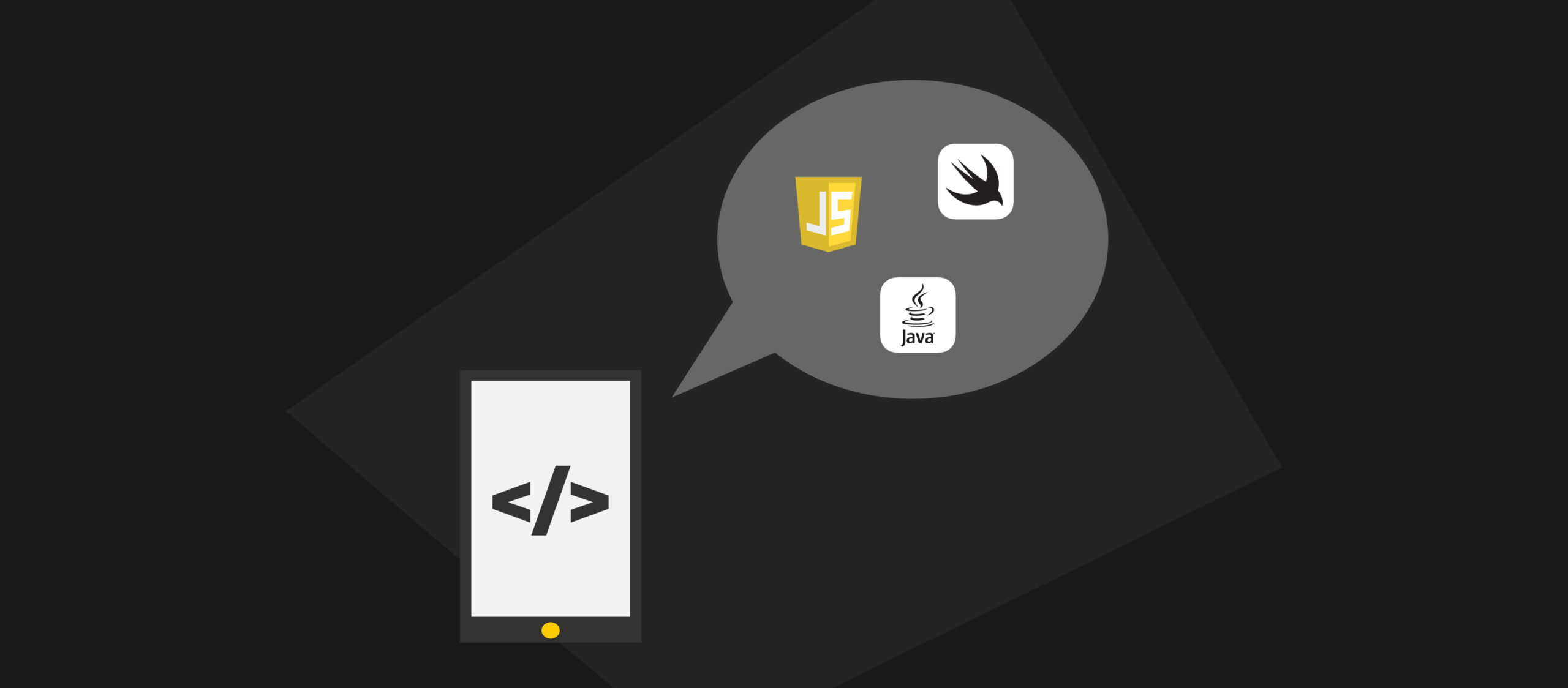Mobile app development is the future. Take a moment and look at every one. You’ll see people checking their phones every 5 minutes. What do they do? Using mobile apps.
There are billions of mobile apps in app stores waiting for you to discover. Therefore, the demand for mobile apps has been increasing more and more since the invention of smartphones.
Even though there are many apps, that doesn’t mean they’re all successful. So, when you want to build an app, make sure to choose the right technology, the right programming language, and the right design tools. Also, of course, you need the right development company.
This article will focus on some of the best programming languages to develop a mobile app.
Here are 3 best programming languages to develop a mobile app:
- JavaScript
- Java
- Swift
1. JavaScript
Among all programming languages, JavaScript has drawn the attention of millions. Its structure as a client-side scripting language is advantageous for developing dynamic websites and mobile apps. JavaScript has consequently gained popularity among both small businesses and large organizations.
JavaScript–based frameworks, such as React, Vue.js, and Angular Js, are thought to be the best when developing and creating effective mobile apps. Due to its efficiency, lower cost, outstanding community support, and simple learning curve, many people who wish to develop mobile apps have discovered that JavaScript is one of the best alternatives.
Mobile app development is a procedure that is well-known to developers all over the world. As a result, they may use JS mobile frameworks without expending a lot of learning effort.
Here are two frameworks we use:
Quasar Framework – This is an MIT open-source framework powered by Vue. It’s a framework for creating apps with only one codebase and running it on both Android and iOS devices using Apache Cordova or Capacitor.
Ionic framework – Ionic is a framework for creating HTML5 mobile apps that use web technology to create hybrid mobile apps. Hybrid apps are small websites that operate inside an app’s browser shell with access to the native platform layer. Ionic features a variety of Cordova plugins and uses one piece of source code across many platforms. Custom themes are supported by the Ionic framework, which makes it simple to modify for the desired application.
We at Eagle IT Solutions use Quasar and Ionic frameworks for developing hybrid applications. We use web technologies such as JavaScript, HTML, and CSS, and with one source code, we have applications for Android and IOS users.
2. Java
Java is another powerful and popular programming language for mobile apps. It’s often confused with JavaScript since people might think Java is shortened for JavaScript. But even though they’re both programming languages, they function very differently. While JavaScript is an object-oriented scripting language, Java is an object-oriented programming language. JavaScript focuses on client-side scripts, while Java is mainly used for server-side development.
In order to minimize implementation dependencies, Java is a class-based, high-level, object-oriented programming language. Because Java is a general-purpose programming language, compiled Java code can run on platforms that accept Java without recompiling. This is meant by the phrase, “write once, run anywhere.”
Java is quick, safe, and dependable. It’s a programming language used by developers to create programs for laptops, data centers, game consoles, mobile phones, and other devices.
It goes without saying that Java is one of the best programming languages to develop a mobile app. Everyone recognizes the value of Java, regardless of whether they work for an enterprise software development company or a startup.
3. Swift
Swift was released in 2014. It was developed to replace Objective C, Apple’s earlier programming language. The language was initially created with a focus on performance and speed to outperform its predecessor.
Swift is an open-source programming language made especially for the iOS, iPadOS, macOS, and tvOS operating systems. It’s a game-changer in the field of developing mobile apps. The language is adaptable, scalable, and simple to add contemporary features to any app. With the first systems of industrial quality, Swift is as expressive and fun as a scripting language. You can experiment with Swift code in a playground without the hassle of building and launching an app and get the results immediately.
Swift is simpler to understand and write because it is a clear, expressive language with streamlined syntax and grammar. When comparing to Objective-C, it is far more concise, which results in less code being needed to complete the same task. Developers save time and effort since Automatic Reference Counting (ARC) handles all the tracking and managing of the app’s memory usage. As a result, creating iOS apps with Swift is typically faster.
Moreover, you receive a future-proof product that can be expanded with additional features needed in addition to a quicker development time. Swift projects are usually easier to scale.
Frameworks for every programming language are known for their effectiveness, stability, and adaptability. When using Swift frameworks, developers only have to worry about an application’s high-level functionality because the framework will handle the low-level functionality.
SwiftUI – Thanks to its adaptable mobile app development features, SwiftUI has become a popular framework for building native iOS apps. It includes compatibility with the most recent version of the Apple operating system, easily navigable interface design options, better user engagement features, and in-app integrations.
Conclusion
Unsurprisingly, there isn’t a single best programming language to develop a mobile app, just as there isn’t a single best language to learn. Different languages can offer special benefits depending on your app’s particular needs and features. But in essence, you have the following options: If you only intend to target the iPhone and iPad, use Swift and Objective-C for the entire iOS platform. With Java, go all Android. Use a framework like Ionic or Quasar that uses web technologies to create a hybrid app that addresses both platforms with a single codebase. Cross-platform development will save you time and money, but you must realize that you’ll never be able to fully utilize the most recent platform features.
Having a clear understanding of your goals and objectives and choosing the appropriate toolkit for your project are ultimately more crucial than the language you decide to use.


